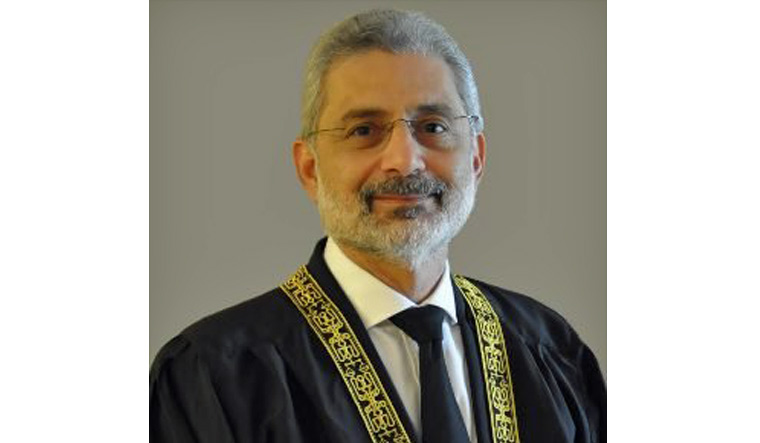NEW DELHI, Oct 13: A lawyer in Pakistan invited rebukes from the Chief Justice of Pakistan for quoting proceedings in the Indian Supreme Court particularly when the “feeling is not mutual.”
A video showing Pakistan’s Chief Justice Qazi Faez Isa rebuking the lawyer for referencing Indian legal precedents has gone viral on social media. Justice Isa, visibly annoyed, is seen questioning the “perpetual fascination” with Indian law, especially since the feeling, he noted, was not mutual.
He made the remarks when a lawyer referred to a case involving a former Chief Justice of India during arguments on the functioning of the Pakistan Supreme Court. Justice Isa asked the lawyer to “go by our traditions.”
“We became independent in 1947. We can learn from other countries by all means, but whilst we refer to Indian judgements, I have never seen it reciprocated in India. Have you come across the Indian Supreme Court judgement or high court judgement, which has ever referred to the judgement of Pakistan?” Justice Isa asks the lawyer in a widely circulated video.
“I think there are some very early ones but not of late,” the lawyer replies. The Chief Justice of Pakistan interrupts, “This perpetual fascination with what happens across the border – why can’t we just stick to our Constitution? We have seen what they have done with their Constitution. Let’s not put that as the benchmark for the best what happens in the world, let’s stick to our own things.”
Justice Isa asked why the lawyer was not looking to Islam. “That is brushed under the carpet, we are looking to India, we are looking to US,” he said. According to Pakistan media reports, Pakistan’s Supreme Court on Wednesday ruled that the Supreme Court (Practice & Procedure) Act, 2023, which requires a committee of senior judges to form benches for constitutional matters and suo motu notices, was “sustained as being constitutional” and rejected petitions against the law in a majority verdict.
(Manas Dasgupta)

